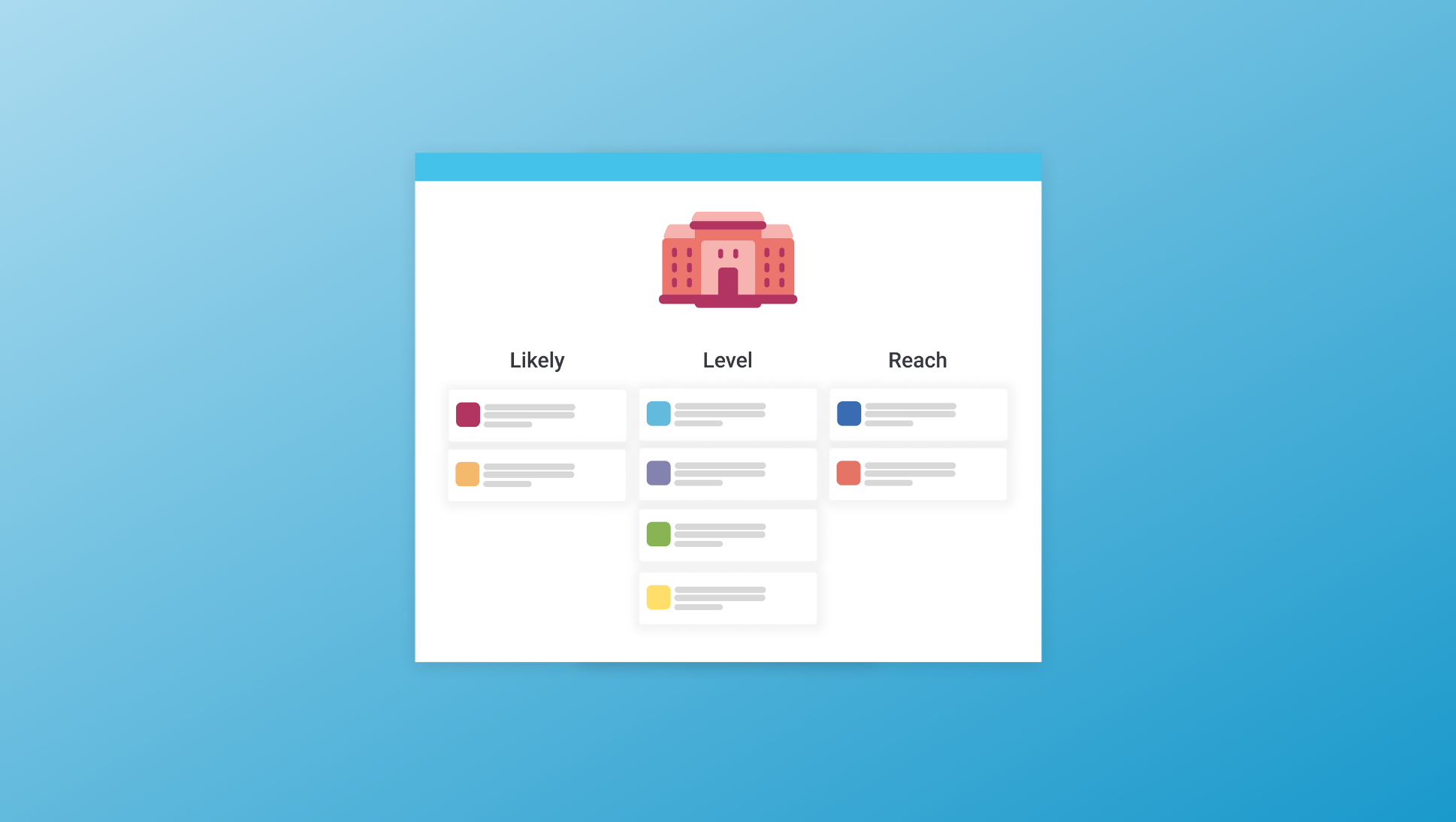2 min read
Top 3 Benefits of the Scoir Counselor Collective
The Scoir Counselor Collective was created for you—school counselors looking to strengthen their network and build community among each other. As...
Free for students & their families
Seamlessly integrated, affordable systems for use across your district.
Career Readiness for 6-8 grade, built to guide and track progress in the early years of career exploration.
Scoir + Common App are integrated for the 2025-26 academic year!
Check out content and practical guides to help inform your enrollment strategies and programs.

 Creating your college list can feel overwhelming (cue "brutal" by Olivia Rodrigo). I get it—I'm here to help! Once you know what kind of college you’re looking for, the next step is to create a balanced college list. It’s all about finding the right fit for you!
Creating your college list can feel overwhelming (cue "brutal" by Olivia Rodrigo). I get it—I'm here to help! Once you know what kind of college you’re looking for, the next step is to create a balanced college list. It’s all about finding the right fit for you!
I'll talk about the different likelihoods of college acceptance and my recommendations for the number of colleges you should consider applying to.
I’ll give a shortened version in case you’re reading this on the go, and then a more detailed version later on!
Knowing how you learn best and what kind of student environment you’re looking for is one of the most important things to consider.
After you have that figured out, you can start to look for colleges that take into consideration how your academic performance and the typical academic performance of a college match up. Usually, these are categorized based on your likelihood of acceptance: likely, level, and reach.
College lists usually contain about 10 or so colleges with a balance of likely, level, and reach schools. These lists should be unique to you! Ideally, you should have somewhere around 3 likely schools, 3-4 level schools, and 2-3 reach schools so that you’ll have a bunch of options when the time comes to choose!
Let’s define these categories, and explore how they help you determine which schools you can get into.
(Here’s the shorter version I promised!):
| Likely Schools (AKA safety schools) |
|
| Level Schools (AKA match schools or target schools) |
|
| Reach Schools |
|
Want to learn more? Keep reading for more detailed information on likely, level, and reach schools.
If you're using Scoir to build your college list, it's worth noting that we have 2 additional categories for your college list: Far Reach and Very Likely. That way, you can get a little more granular with your college list.
Be sure to check out this article with info on how to manage your college list with My Colleges in Scoir as well!
Now, let's explore how to determine your safety, target, and reach schools.
What is a likely school? A likely, or safety, school is one where your grades and test scores exceed those of the average admitted student (this info can be found on the college's admissions page).
Typically, having scores above the 75th percentile for a particular school would be considered well above a school's range. Too often, students do not pay enough attention to these schools; however, depending on your financial situation, they may be very important.
Why?
Because you can get academic merit scholarships.
Many schools, both private and public, will give students merit money as a way to incentivize the higher-achieving students to attend their institution. Certainly a big achievement! As with any college on your list, however, be sure to also ask yourself: "Would I be happy at this school?"
Got accepted and are confused about your financial aid award letter? Check out our blog post about how to read your award letter.
Colleges that are considered level, also referred to as match schools or target schools, are ones you should be accepted into based on your GPA and test scores. You fall nicely within the 50% range of what they are looking for in a candidate for admission. Keep in mind, though, that nothing is guaranteed. Spend a good amount of time focusing on these schools and finding the best fit, since it is very possible that you could attend one of these schools.
These colleges may cost less than you think. Check out our Straightforward Guide to Understanding Financial Aid for more info.
The best way to think about a reach school is: “I probably will not get into this school, but it is worth a try.” By definition, these schools are reaches, meaning that your GPA and/or test scores fall into the lower 25% of what they typically accept for their incoming class. As a result, it’s best not to invest solely in this category of school, so that you have lots of other options that may be a better fit for you.
Find just 2-3 reach schools that you like and apply to them. If you get in, fantastic! If not, it's no big deal because you know that you’ve applied to many schools in which you will get in. With this mindset, the entire college application process will be much less stressful.
Ready to learn more? Here’s our podcast about Tips for Making the Final Choice of College. Plus, we have an additional blog post called The Beginning Stages of Creating a College List: 6 Tips to Get Started if you're looking for more college list building tips!
Note to Parents and Guardians: To any parents or guardians reading this, I wanted to drop this note regarding reach schools. Please, try not to put unrealistic pressure on yourself or your student when it comes to reach schools. In the end, not many people care where your student goes to school. Yes, it’s fun to talk about or to post on social media, but encouraging your student to pick the best-fit college for them will go a much longer way. Try to avoid getting caught up in the name game of colleges at the expense of your student. In the end, who cares if people don’t recognize the name of your student’s college, if your student is happiest there? Help to change the culture of student pressure.
Overall, again, while these categories are NOT the only important part of picking a college, they are helpful in making sure your college list is well-rounded! Remember: about 3 likely schools, 3-4 level schools, and 2-3 reach schools is the rule of thumb. I know you’ll find the right fit. 'Til next time! 😊
This article was originally published on August 25, 2021. It was updated on June 7, 2024 for accuracy and comprehensiveness.

2 min read
The Scoir Counselor Collective was created for you—school counselors looking to strengthen their network and build community among each other. As...

4 min read
We recently published a podcast episode on this topic. This blog post provides a recap of what we covered during the episode. Hi! It’s Abby from...

6 min read
Gaining admission to the college(s) of your choice might weigh heavily on your mind at the moment. The odds are that the prospect of affording...